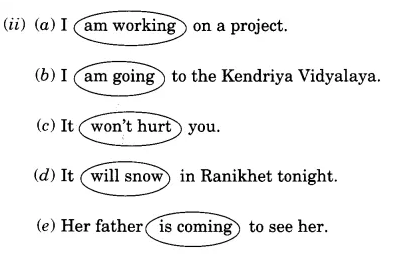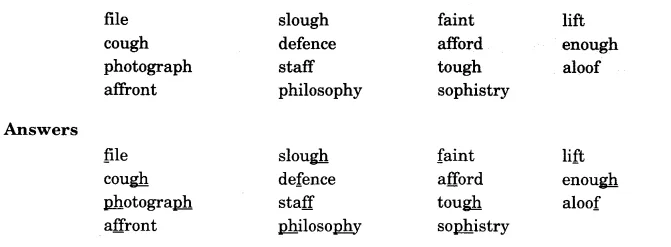NCERT Solutions for Class 8 English It So Happened Chapter 10 The Comet II are part of NCERT Solutions for Class 8 English. Here we have given NCERT Solutions for Class 8 English It So Happened Chapter 10 The Comet II.
| Board | CBSE |
| Textbook | NCERT |
| Class | Class 8 |
| Subject | English It So Happened |
| Chapter | Chapter 10 |
| Chapter Name | The Comet II |
| Category | NCERT Solutions |
NCERT Solutions for Class 8 English It So Happened Chapter 10 The Comet II
TEXTUAL EXERCISES
COMPREHENSION CHECK (Page 83)
1. “For a moment James wondered if he had done his sums right.” Why was James doubt¬ful about his sums and calculations ?
2. What did the scientists at the conference say about James’s ‘sums’ ?
3. Immediate action was needed, the scientists decided. Give one example each of‘defensive’ and ‘offensive’ action mentioned in the text.
4. “I am not buying any Christmas presents till December 15.” What did Sir John mean by that ?
Answers
1. Sir John dropped James at his hotel at 1 a.m. When he looked up from his window, he saw the star-studded sky. Looking at the sky, it was difficult to believe that any calamity could happen. So James wondered if he had done his, sums and calculations right.
2. The scientists at the conference discussed the matter for a week. They came to the conclusion that James Forsyth was correct in his calculations. The ‘Dutta’ comet would collide with the earth.
3. The scientists suggested suitable measures. They rejected defensive measures like living in bunkers. So the only way was to take offensive action. The comet could he slightly deflected from its path. A nuclear explosion could do the job. This could be done by exploding a nuclear payload near the comet.
4. Sir John was doubtful about the success of the offensive action suggested. So he told Duttada that he won’t buy his Christmas presents till December 15. By that time the whole situation would become clear.
COMPREHENSION CHECK (Page 87)
1. What is Duttada expected to do on his return from London ?
2. What is his reaction to the proposal ?
3. (i) What does ‘Project Light Brigade’ refer to ?
(ii) What does Sir John say about the Project in his letter to Duttada in October ?
4. Did Sir John buy Christmas presents on December 15 ? How did Duttada get to know about it ?
5. Why, according to Indrani Debi, had the comet not been disastrous ? Do you agree with her ?
6. Is Duttada’s general outlook
- rational ?
- moral ?
- traditional ?
Choose the right word. Say why you think it right.
Answers
1. Duttada is expected to do a shanti-path to pacify the evil spirit. His wife had called the priests to bless him. People were waiting for him to perform the yajna.
2. When the proposal of & yajna was put before Duttada, he became very angry. He did not find any specific advantage in that ceremony. He considered it no more than a superstition to think that comets have ill-effects.
3. (i) ‘Project Light Brigade’ refers to the project of averting ‘Dutta’ comet’s collision. For
this purpose, a spacecraft had been launched. It carried nuclear fuel. It would be exploded near the comet to break it up.
(ii) Sir John gave an account of the meeting of the Royal Astronomical Society. He also told about the unusual warm weather. He also made a mention of “The charge of the Light Brigade.”
4. Duttada knew about Sir John’s buying the Christmas presents from a letter.
5. Indrani Debi was sure that the comet ‘Dutta’ had not been disastrous because of the yajna.
6. Duttada’s outlook is rational because he does not believe in outdated rituals and ceremonies. He is truly a scientist and has a scientific attitude to life. He cannot be called traditional. There can be no question of morality so far as scientific investigation is concerned. A scientist has to go by reason, not by morality.
EXERCISE (Page 88)
Discuss the following topics in small groups. Write your answers afterwards.
Question 1.
Should a scientist’s findings be suppressed if they seem disturbing ? Give reasons for and against the topic.
Answer:
Copernicus (1473-1543) was a Polish astronomer. He put forward the theory that the earth orbits the sun. Until then Ptolemy’s theory was generally accepted. The theory was that the earth was the centre of the universe. Heavenly bodies rotated round it. Copernicus’s theory went against the traditional theory as well as the Bible. But Copernicus’s findings were not suppressed. Galileo (1564-1642) the Italian scientist also accepted Copernicus’s theory. But, in 1633, he was made to recant by the church. However, even then the earth revolved round the sun as it does now. So we gain nothing by suppressing a scientist’s findings. Truth should come to light however disturbing it may be.
Question 2.
Do you think ours is a traditional society ? What are some of the things we do to be called traditional ? Do you find these things useless or useful ?
Answer:
No doubt, ours is a traditional society. We are traditional because we believe in so many religious rituals and ceremonies. Most of these are useless. For example, Indrani Debi organised a yajna to avert the comet’s collision with the earth. She was an M.A. yet she believed in such things rather than scientific measures. She even believed that tine yajna had averted the collision. We find these things interesting but most of them are useless. They serve no useful purpose. Only superstitious people believe in such things.
Question 3.
Give two or three examples to show how science has been useful to us.
Answer:
Scientific discoveries have made human life more comfortable than before. Most of the progress in the world is because of science. It has helped man in fighting disease and poverty. The invention of electricity, steam engine, etc. has brought about a change in our life. There is no field of life or activity where science is not helpful.
Question 4.
Give one example to show how science has been misused, and has as a result been harmful to us.
Answer:
Man has misused science by producing weapons of mass destruction like atom and hydrogen bombs. They can bring about widespread destruction in no time. They don’t spare even innocent people.
We hope the NCERT Solutions for Class 8 English It So Happened Chapter 10 The Comet II help you. If you have any query regarding NCERT Solutions for Class 8 English It So Happened Chapter 10 The Comet II, drop a comment below and we will get back to you at the earliest.





















